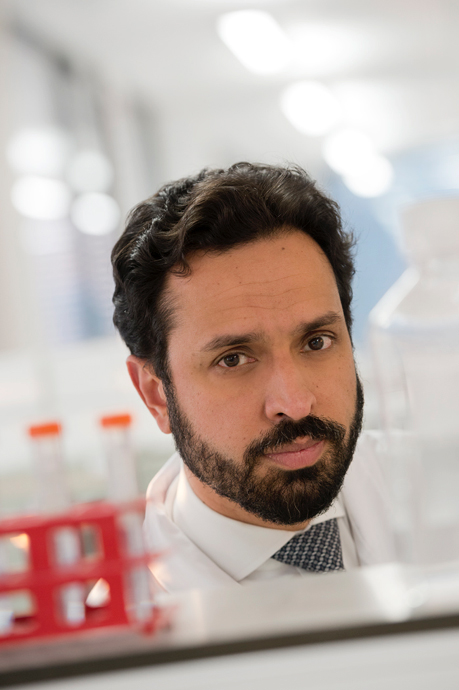A patient diagnosed with lung cancer should brace for the worst. Prognosis is often very disappointing. While in many cancers early diagnosis and treatment is key, lung cancer patients experience regular relapses, even when diagnosed early.
Most of the time this can be controlled with chemotherapy, albeit temporarily. After that, immunotherapy offers some hope, but only for 20% of the patients. New, more advanced treatment technology is badly needed. Karim Vermaelen, pulmonary physician and thoracic oncologist at UZ Gent, is on a mission. He and his team are focused on saving more people and investigate the interactions between lung cancer and the immune system, with a special focus on dendritic cells.A therapeutic vaccine
Therapeutic vaccination against cancer has proven to be challenging. The vaccine intervention must combat an immune system that has been restrained to sustain the disease in a misguided attempt at self-tolerance. Nevertheless, recent clinical results indicate that the era of successful therapeutic vaccination has arrived. Karim and his team are ready to bring their vaccine against lung cancer into the clinic. ‘We are focusing on dendritic cells because they can function as sentinels and alert T-lymphocytes when tumors develop. We uncovered how lung tumors corrupt the function of the dendritic cells and escape immune control by reprogramming the micro-RNA repertoire of the dendritic cells. The micro-RNA signature of these corrupt cells predicts a worse outcome in lung cancer patients. We think that interfering with the surge of bad micro-RNAs within dendritic cells can provide a novel way to restore proper anti-tumor immunity’. ‘For now, we are exploring the therapeutic potential of immunostimulatory dendritic cells generated in vitro from patient blood. By loading these cells with mRNA prepared from the patient’s own tumor, or mRNA encoding a highly expressed and immunogenic set of cancer antigens, we are developing a cellular vaccine. In vitro, the vaccine has all the characteristics to induce a strong immune response and tackle the tumor cells that now escape. We are preparing the dossier for approval by the FAGG (the Belgian Federal Agency for Medicines and Health Products). We are keen to get the first trials started with a limited number of patients to establish safety and biological activity. This will allow us to move quickly to metastatic cancer patients’.Immunotherapy has already delivered fantastic results.


